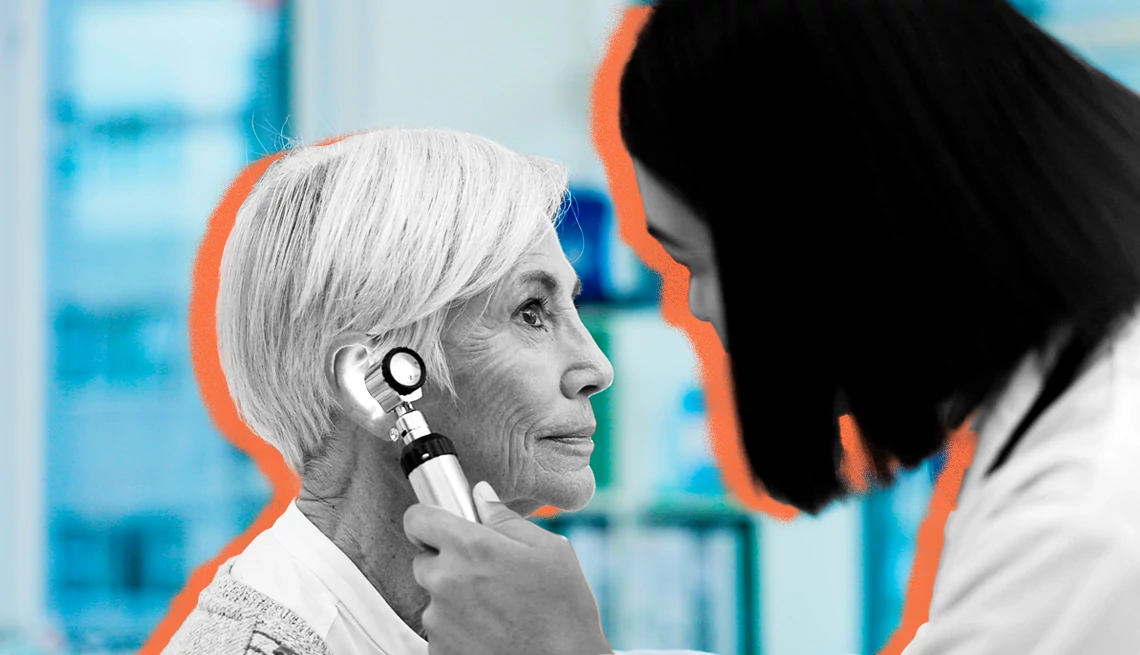AARP Hearing Center


Key takeaways:
- Hearing loss affects two-thirds of adults age 70 and older.
- Researchers don’t know what causes ringing in the ear, known as tinnitus, but treatments are improving.
- Impacted earwax, which almost 60 percent of nursing home residents deal with, can cause a host of hearing health problems.
- Itchy ear might not seem serious, but it could be a sign of something else.
- Treatment for cholesteatoma almost always requires surgery.
Hearing loss is perhaps the biggest concern for adults when it comes to their hearing health, but it’s not the only one.
You may have dealt with other hearing ear health issues, like ear pain, swimmer’s ear or a ruptured eardrum. None of these are usually very serious, but some ear and hearing problems could be indications of something that warrants a visit to your doctor. Here’s what to know about some of the most common hearing health issues and how they can be treated.
Hearing loss
More than 25 percent of adults in their 60s have some form of hearing loss, and that number jumps to nearly 66 percent for adults age 70 and older.
Free Hearing Test
AARP members can take the National Hearing Test online or on their phones — for free. This 10-minute test can help you decide whether you need a more comprehensive hearing exam.
One of the most common reasons our hearing worsens is age. But loud noises, trauma and even medications can damage your hearing, too. Options like hearing aids and cochlear implants offer solutions to help improve your hearing. Certain foods and wearing protective earplugs can help prevent further damage to your hearing.
Tinnitus
Tinnitus is when you hear phantom noises like hissing and ringing in your ears that others don’t hear. About 26 million adults in the United States have tinnitus. Researchers don’t know exactly what causes tinnitus, though it’s usually linked to sensorineural hearing loss. Prescription medications you take and conditions like temporomandibular joint (TMJ) disorder and Ménière’s disease can also cause it. Treatments range from removing impacted earwax to using white noise machines. One of the newest FDA-approved treatments combines acoustic therapy with electric stimulation.
Ear infections
Yes, adults get ear infections, too. They’re most often caused by fluid buildup in the ear canal or middle ear. They’re painful but usually don’t last more than a few days and can be treated by antibiotics.




































































Next in series
Tinnitus Causes and How to Treat Ringing in the Ears
Tinnitus causes ringing in the ears that can disrupt your life. Learn what triggers it how to treat it